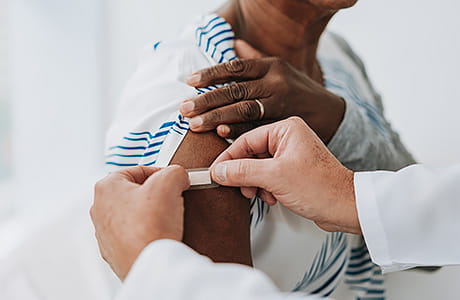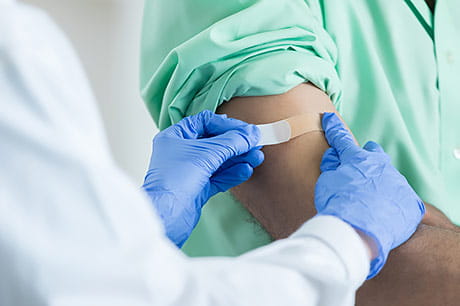How to cope with loss of taste and smell
Do you have loss of taste and smell after a bout with COVID-19? A dietitian shares some tips to cope.
Our sense of smell and taste play an important role in our day-to-day lives. Working together, they help us enjoy the foods we eat. And our sense of smell in particular can bring back memories from years ago.
One of the lingering symptoms some people experience from having COVID-19 is a loss of taste and smell. And while scientists aren’t entirely sure why it’s happening, it’s not the only condition or illness that causes this side effect.
“We’ve also seen people who have chemotherapy or radiation therapy lose their sense of smell and taste,” says dietitian Kim Segiel. “And it can be very frustrating for people — they can feel lost and confused, lose interest in eating and often experience depression.”
So, how do you cope with a loss of sense of smell? Here are a few tips:
Focus on look and texture
When you lose your sense of smell or taste, you may have less desire to eat and drink, which can lead to unwanted weight loss and malnutrition.
“It’s important to focus on other senses — like the visual appeal of food and textures — to drive your desire to eat,” says Segiel. “Try to work in a variety of foods and textures with fruits, vegetable and proteins.”
You can also try adding different spices or hot sauces to your food to see if your taste buds react to these flavors. Some spices even add color to your meals for bonus visual appeal. But steer clear of adding sugar or salt to your food to try for sweet or salty flavors, as this isn’t a healthy approach.
“Instead, lean on adding those spices and varying textures to your foods,” says Segiel. “For example, pair a creamy, low-fat yogurt with a crunchy granola, and remember to be mindful of your portions.”
Also, avoid adding things like gravy or cream-based sauce to your food. While you might enjoy the texture they add, the extra sodium isn’t good for your overall health.
“It’s also smart to track your meals to make sure you’re getting enough protein and calories each day,” says Segiel. “And if you find that you aren’t, consider talking with your healthcare provider about nutritional supplements to help you get the vitamins you need each day.”
Try 'smell training'
To reawaken the nerves that help you smell, a daily routine of sniffing aromatic essential oils may help bring back your sense of smell. Smell training is most successful when practiced twice a day for at least 4 months, spending 20 to 30 seconds with each scent.
This repeated exposure to certain smells can train your brain to recognize them over time as you try to remember what each smell should smell like. And this may improve your overall sense of smell by repairing the nerves that respond to it.
Watch for other COVID-19 symptoms
If you’ve just recently lost your sense of taste and smell, be sure to watch for other symptoms that could mean you have COVID-19.
COVID-19 symptoms can include:
- Cough
- Shortness of breath or difficulty breathing
- Fever
- Chills
- Repeated shaking with chills
- Headache
- Sore throat
- Muscle pain
And if you’re struggling emotionally with your loss of smell and taste after having the virus, you aren’t alone in feeling frustration or loss.
“If you’re starting to feel stressed or depressed as a result of your loss of taste and smell, reach out to your healthcare provider,” says Segiel. “They’re your support system as you work through these feelings.”
Next steps:
For the latest updates, visit our Coronavirus Resource Center
COVID-19 vaccine myths debunked

Telemedicine video visits
See your doctor from the comfort of home — from routine care to specialty care
Get virtual care nowCOVID-19 updates: Visit Geisinger's Coronavirus Resource Center for the latest information and helpful resources.




